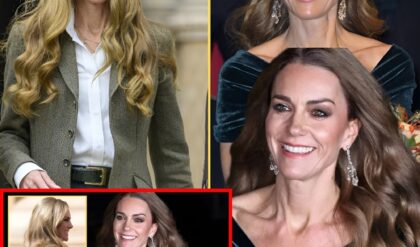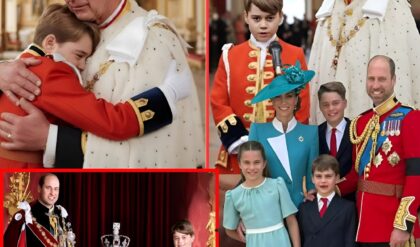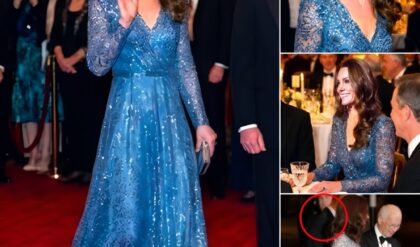To borrow a phrase from George R.R. Martin, misogyny — like racism or transphobia or any other baseless hate — is a sword without a hilt. True, it’s a dangerous weapon, and you’re going to hurt your targets and hurt them bad. But there’s no safe way to swing a weapon like that without doing damage to yourself.
Whatever else anyone wants to call them, Lyle and Erik Menéndez are men. They should therefore be the beneficiaries all our patriarchal society can bestow — power, respect, the benefit of the doubt. When men speak, we’re supposed to listen.

But the male jurors who refuse to acquit the brothers during their first trial, thus causing a mistrial and prolonging the whole ordeal, do not extend this aegis of patriarchy to their brothers Lyle and Erik. No, the Menéndezes are out of the fraternity of trust for three reasons. First, the male jurors lack the maternal instinct that would cause them to sympathize with the defendants, says one female juror; that kind of kindness has been drummed out of them. Second, they do not believe boys can be abused; victimization is de facto feminine.
But finally — and most importantly, says the juror who confides in Leslie Abramson about it after all her peers have departed — the male jurors voted to convict Lyle and Erik not because they hate Lyle and Erik, but because they hate Leslie. Anyone who lived through the 1990s or their disastrous 2016 revival attempt can tell you why. The big blonde hair, the power suits, a high-profile and high-paying job in a position of authority, a personality that’s not structured around being pleasant for men to be around: It won’t do.
So because a few men disliked a woman, two men are still up for execution for the crime of killing the people who tortured them all their lives. It’s more important to the male jurors to punish that woman than protect their fellow men. Actor Ari Graynor looks physically nauseated as Leslie swallows this shit sandwich whole in seconds without breaking a smile, because god forbid.Not that Leslie is above using more traditional — if, uh, idiosyncratic — versions of femininity to make a point when and where it serves her. The beginning of this episode is a showcase for Leslie Grossman as Judalon Smyth, Dr. Jerome Oziel’s patient, mistress, and (we learn here) victim. By establishing that Oziel is not just a criminal but also kind of a pathetic dork, she torches a large part of the prosecution’s case. But she also just seizes the spotlight because of her generally zany demeanor. She’s into crystals and cats and is generally a kind of woman that men aren’t going to feel threatened by. Baffled by, maybe, but not threatened by.
In a sense, the whole episode comes down to the issue of performance. Does Leslie act the way a woman is supposed to — does she perform gender properly, to get a little jargony about it? What about Judalon? Does her star turn merit her the cover of Vanity Fair, as she pitches to Dominick Dunne?
Speaking of Dunne, what are his constant dinner parties but a little one-man show, where he can delight his coterie with his unique blend of effete erudition and fire-and-brimstone hang-em-high justice? And he put on a hell of a performance last episode when he apologized to Leslie, either for not believing the brothers or for underestimating her ability to get them to lie — it sure seemed like he meant the former to me at the time, but it was the latter all along. (To bring things back to misogyny for a moment, Dunne — Nick to his friends — mocks the women dating the brothers in jail and makes a snide insinuation about Erik’s un-macho homosexuality.)
Then there are the performances of the brothers themselves. Lyle is devastating on the stand, but gets recorded saying he’d rehearsed crying — among countless other statements that make it impossible for him to testify at their second trial. Erik blows his own testimony because of a malfunctioning mic he can’t stop messing with, like a kid in a high school production. Before things go south, Lyle suggests different actors who can portray them in the inevitable movie to follow (Brian Bosworth, Rob Lowe, Kirk Cameron) and is thrilled that John Malkovich played him on SNL. Cameras record every inappropriate smile, every strange glance directly into the lens, or through it at the viewers at home.

Which in a way is where the episode leaves us: the media, which has turned the entire thing into an ongoing television series. Right around the time the 1994 earthquakes start hitting L.A., Erik gets the sense that something in the media narrative has shifted against them. He blames Leslie, and that’s part of it — she can join Marcia Clark and Monica Lewinsky in Ryan Murphy’s “History Misjudged Us” Justice League — but of course it’s also prolonged exposure to the badly broken brothers themselves.
But the Menéndez Brother Show is about to lose in the ratings to the biggest hit of the decade. Ordered to help clean the cell block in anticipation of a “VIP,” Erik watches O.J. Simpson’s infamous Bronco chase, and later winds up in the cell right next to him. (Erik advises the Juice not to trust Robert Shapiro — and to consider a plea bargain.) Soon Jay Leno will go from spoofing Lyle’s horrendously misguided fundraising efforts to the Dancing Itos. A Los Angeles already torn apart once by racist cops and riots will have a spectacle to follow like none before it, though the brothers set the template.
Meanwhile, Erik and Lyle’s money, their store of goodwill, their fan letters, their legal team, their luck, and possibly their time are all running out. Sorry, fellas. I know it says “MEN’S CLUB” on the door, but it’s members only.






